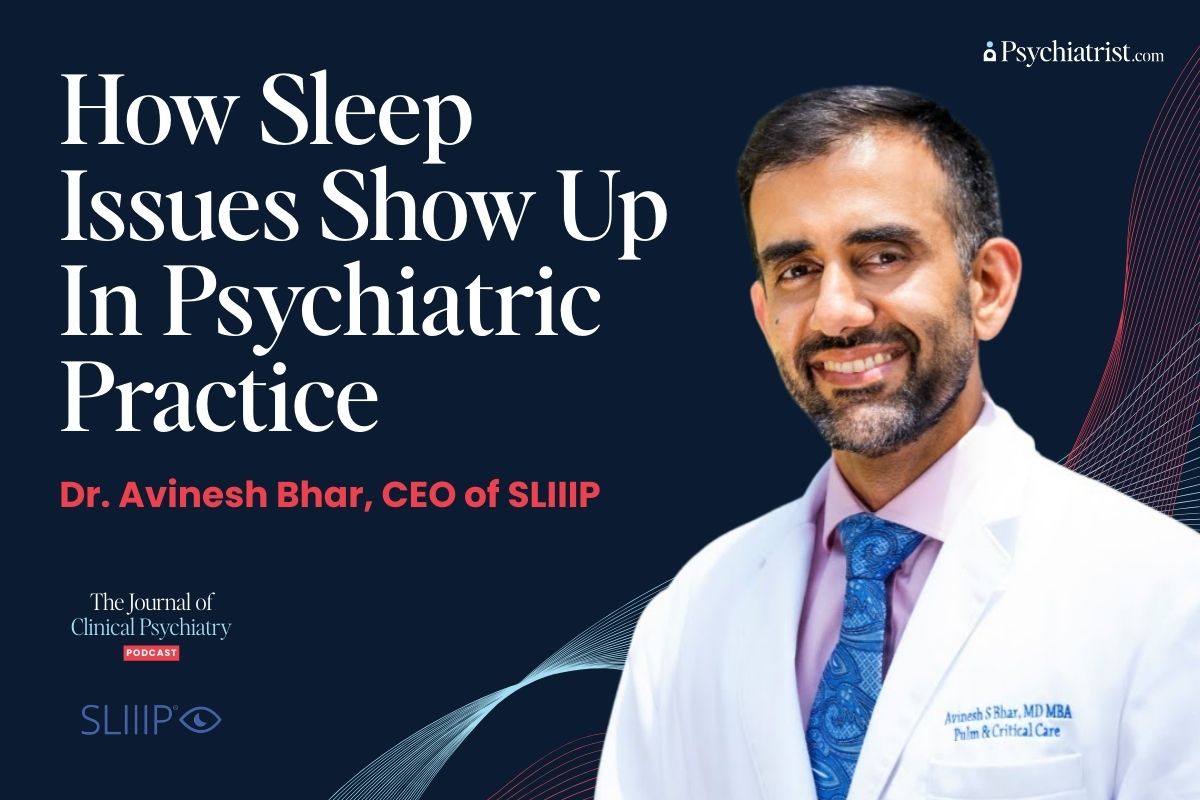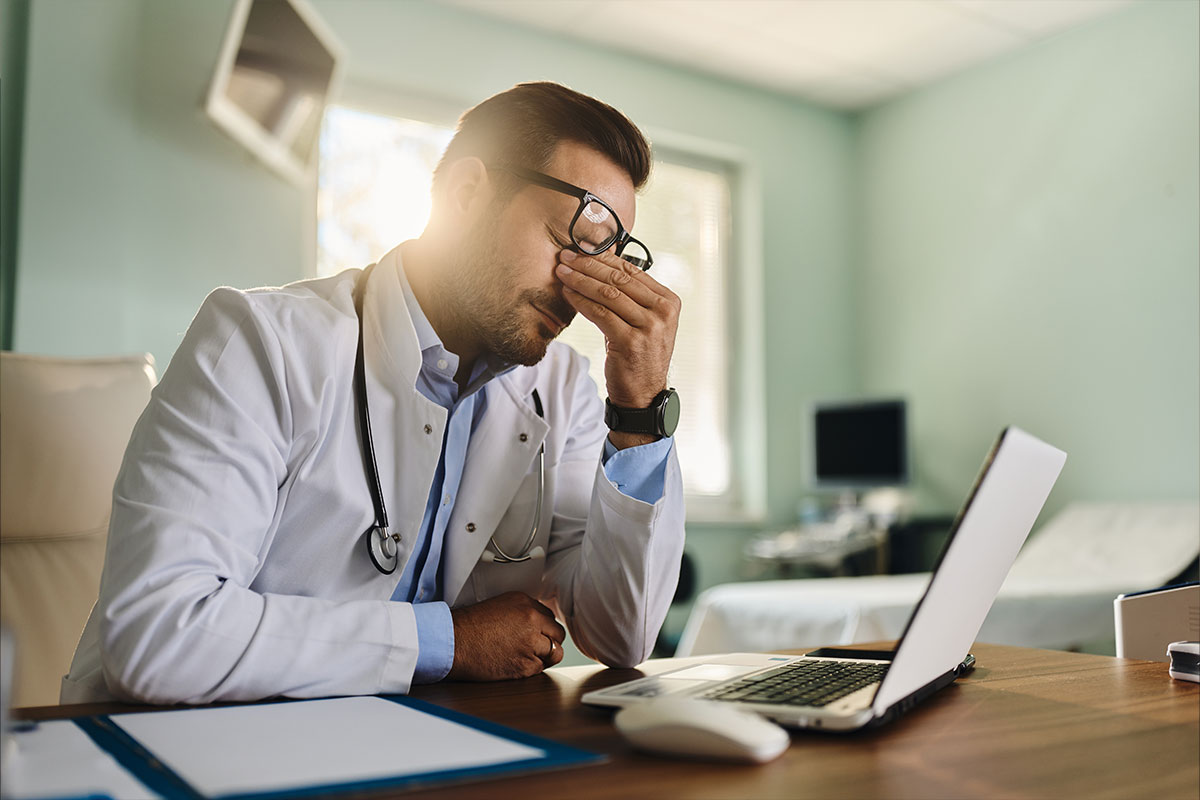To the Editor: Watching the pre-Paris 2024 Olympics documentary on Simone Biles on Netflix, we were struck by her description of what happened to her in the Tokyo Olympics 3 years ago.1 She painfully described her inability to function as an athlete, ie, “continual loss of balance and sense of space,” as she did her precompetition routines. Her coach explained that the problem was due to the “pandemic context,” that it was due to not having any friends or family with her. We asked outselves, “How was it that a physician was not immediately consulted about the medical crisis for the best athlete in her sport in the world?”
Our thought was, “Isn’t loss of sense of space a brain dysfunction?” The question we had was, “Don’t brain injuries or illnesses in athletes need to be diagnosed and treated medically by a physician, more specifically by a psychiatrist and/or neurologist?” In this situation, a physician should be the one figuring out (diagnosing) what the problem is, not a “mental health therapist or a layperson” like her coach. Most importantly, what if she needed medication? It would have to be provided by a physician. According to the American Psychiatric Association practice guidelines,2 clinical assessment and treatment of mental health symptoms and illness should be conducted by a licensed/registered mental health professional and require education and clinical training in psychiatry. Moreover, the management of brain illness that affects the brain is a core competence of the psychiatrist,2,3 in sports of the sports psychiatrist.4
Across different sports, the usual process when an athlete gets injured and cannot do their sport is they get evaluated and treated by a sports physician, usually a general practitioner, internist, orthopedist, or other physician.5 For example, when a baseball pitcher says he can’t throw because of pain in his throwing arm or when a football player says he can’t run because of leg pain, they are seen typically by an orthopedist. When a basketball player says she can’t play because of a high fever or infection, they are seen typically by a general practitioner or internist. In contrast, in the past, athletes with “mental problems,” like the “twisties” that Biles diagnosed in herself or “the shakes” in golfers or other personal issues, were often sent to a therapist, not a physician, or they were diagnosed by a coach or trainer as having a mental or physical problem.6 These individuals cannot provide psychotherapy or prescribe medication.
The brain is a functional part of the body just as a muscle is. It is “central control.” However, many symptoms of brain dysfunction/illness are too often dismissed as nonmedical mental problems. A physician, ideally a sports psychiatrist and neurologist, should see the athlete.5 Psychiatrists and neurologists are trained to understand how the brain-mind works. They then do a mental status examination and/or neurological examination plus tests on the rest of the body like magnetic resonance imaging and electroencephalogram as indicated. Following this, the athlete should be seen for management after treatment to help them to play, ie, return to the field to do their sport.
The point here is that sports psychiatry and neurology have to be viewed as a central part of the sports medicine field.7 Currently, this part of sports medicine is being managed mostly by nonphysicians. Ironically, in the recent Olympics in Paris, American newspapers and the American Psychiatric Association reported that athletes had greater access to mental health resources that year (2024) than ever before. These resources for the US Olympic team turned out to be staffing by 12 psychologists in person and 1 psychiatrist working remotely in the States. In contrast, the Swiss Olympic team in Paris was accompanied and medically supported by 4 physicians, while the Japanese Olympic physician team was staffed also by a sports psychiatrist.
By way of summary, brain illness in athletes needs to be diagnosed and treated with medical, psychiatric, and neurological support, and care should be managed by physicians to ensure optimal immediate and long-term management as well as improved performance.
Article Information
Published Online: October 2, 2025.https://doi.org/10.4088/PCC.25lr04032
© 2025 Physicians Postgraduate Press, Inc.
Prim Care Companion CNS Disord 2025;27(5):25lr04032
To Cite: Glick ID, Claussen MC. Brain injuries, illness, and treatment in sports: it’s not all in the mind. Prim Care Companion CNS Disord 2025;27(5):25lr04032.
Author Affiliations: Professor Emeritus of Psychiatry and Behavioral Sciences, Department of Psychiatry, Stanford University School of Medicine, Stanford, California (Glick); Research Group Sports Psychiatry, Center for Psychiatric Research, Department of Adult Psychiatry and Psychotherapy, Psychiatric University Clinic Zurich, University of Zurich, Zurich, Switzerland (Claussen); Clinic for Depression and Anxiety, Psychiatric Centre Muensingen, Muensingen, Switzerland (Claussen).
Corresponding Author: Ira D. Glick, MD, 2 Scenic Way, San Francisco, CA 94121 ([email protected]).
Relevant Financial Relationships: None.
Funding/Support: None.
References (7)

- Simone Biles Rising. Netflix. 2024.
- The American Psychiatric Association Practice Guidelines For the Psychiatric Evaluation of Adults, 3rd ed. American Psychiatric Association; 2016.
- Bhugra D, Ventrijlio A, Kuzman MR, et al. EPA Guidance on the role and responsibility of psychiatrists. Eur Psychiatry. 2015;30:4017–4422.
- Claussen MC, Currie A, Koh BYE, et al. First international consensus statement on sports psychiatry. Scand J Med Sci Sports. 2024;34(4):e14627. PubMed
- Glick I D, Kamis D, Stull T. The ISSP Manual of Sports Psychiatry. Routledge Press; 2018.
- Kliegman J. Whatever happens in Paris, Simone Biles is finally free. NY Times; 2024:A18.
- Claussen MC, Prossor D, Nahman C, et al. The evolution of sports psychiatry: a clinical intersection of mental health and physical activity. Br J Sports Med. 2025;59(6):353–355. PubMed CrossRef
Enjoy this premium PDF as part of your membership benefits!





